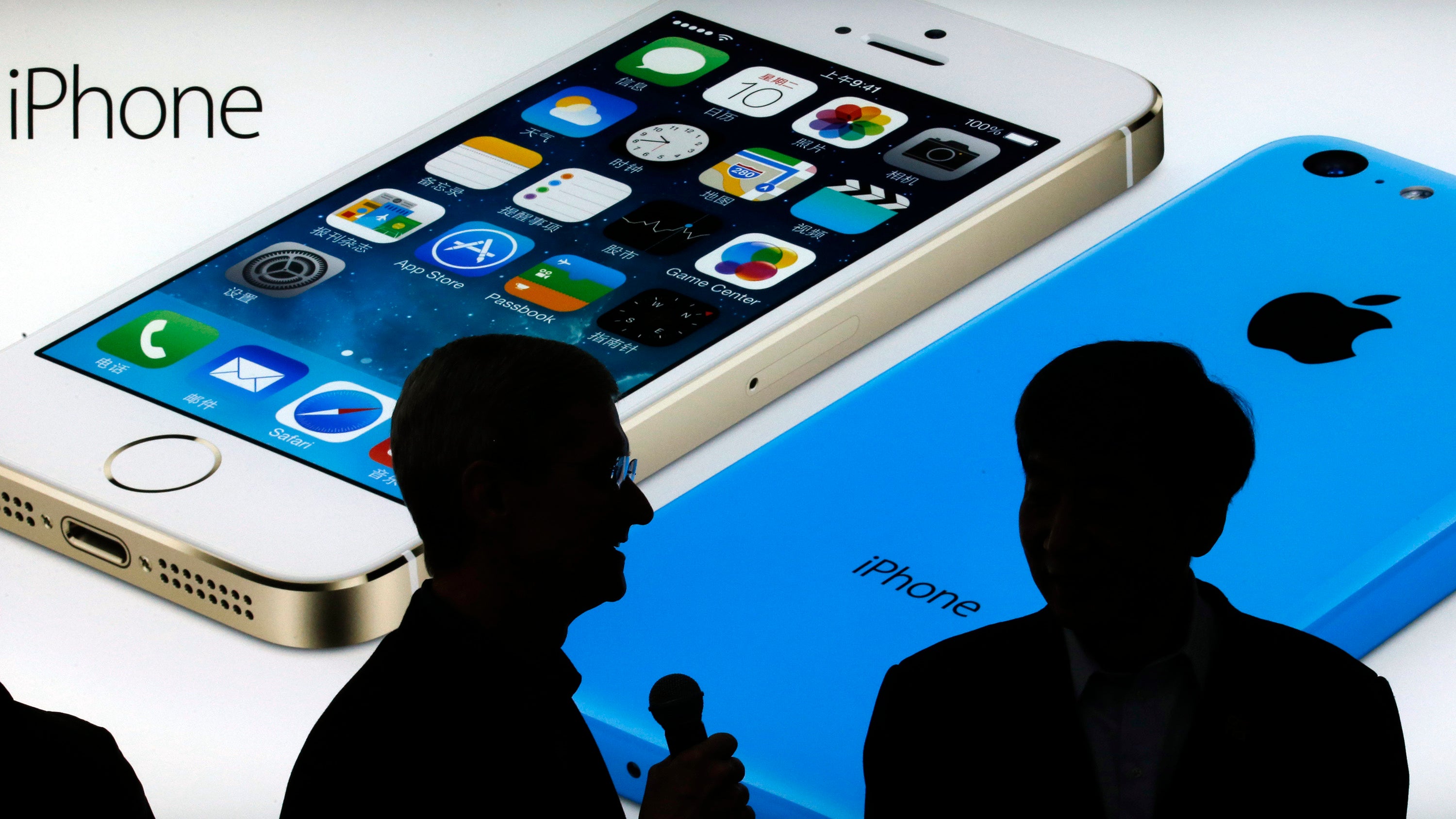The iPhone is on mute in Russia, where Apple has had to take sides
The tech giant has paused sales of its product, citing the Russian invasion of Ukraine, in a unilateral move that is notable for a company that has largely sought to avoid political controversy, writes James Moore


So it’s dasvidaniya to the iPhone and other Apple products in Russia. At least for now. The group has announced a “pause” to its sales in the country. The App Store will remain open, but Russia Today and Sputnik News have been removed from it outside of Russia. Apple Pay has been limited in the country. “Precautionary measures” have been taken with regard to Apple Maps in Ukraine.
The company has also expressed “deep concern” about the “Russian invasion”. Note the language there. It doesn’t say the “conflict”, or the “situation”, or even the “violence” in Ukraine. It explicitly uses the term “Russian invasion”, which Russia still angrily refuses to characterise its actions as, despite all the evidence to the contrary. Big tech in general has been taking heat over its response to the horrific events unfolding in Ukraine.
But Meta (Facebook), and especially Twitter, have sufficiently irked the Kremlin that their services have been restricted. They, and Google, had also only partially complied with Russia’s new media law, prior to the outbreak of hostilities. Apple, by contrast, was reportedly the first of the 13 foreign tech companies coming under its scope to open a local office as demanded. The step it has taken here – notably with its iconic device – is striking, and all the more so given Apple’s aversion to getting involved in political entanglements that don’t directly involve its business interests.
CEO Tim Cook has, it is true, vocally supported getting more women onto corporate boards, and into Stem (science, technology, engineering and maths) subjects generally. But that’s hardly a controversial stance. There is a general recognition that this needs to happen, together with research demonstrating that businesses that embrace diversity are more profitable. Apple issued a statement in response to the murder of George Floyd, titled “Speaking up on racism”. So did lots of companies, with varying degrees of sincerity. Cook has also supported gay rights, and was indeed the first CEO of a Fortune 500 company to come out as gay, to his great credit.
But quoting Martin Luther King’s “Life’s most persistent and urgent question is, ‘What are you doing for others?’” on his Twitter feed does rather feel like virtue signalling on his part, especially when you consider the group’s tax affairs, its close work with the Trump administration on the latter’s corporate tax cuts, and the battles with the European Commission over the company’s sweetheart deal with Ireland.
Apple’s much-vaunted pro-privacy stance in favour of its customers often draws positive reviews, but it is also smart marketing from a business that doesn’t rely on ads in the way that Meta and Google/Alphabet do. The group has also notably resisted the pressure it has faced over the business it does with, and in, China. With the sanctions it has imposed on Russia, however, it has taken a side. In many ways, this is a mark of how rapidly, and dramatically, the world has changed in barely a week – a process that is ongoing.
The immediate impact on Apple’s business will be small. There will be some lost sales, but the developing economic crisis in Russia was going to hit them anyway.
Losing Russia, even if US sanctions turn the “pause” into something more long term, isn’t that big a deal. Gone are the days when the country’s economy was seen as one of the sexy BRICS set (Brazil, Russia, India and China, with the later addition of South Africa), a term coined by Goldman Sachs Asset Management, which led to regular get-togethers among those making up the acronym.
Today, the country’s financial future looks bleak. Individual Russians will probably be able to find ways to get their hands on new iPhones if they can afford them, and there are plenty of competitors freely available, if also increasingly expensive as a result of the Rouble’s dramatic decline.
Apple’s move is more significant culturally. The relative scarcity of the iPhone – one of the world’s favourite consumer products – will serve to emphasise the country’s isolation, just like its ejection from sporting competitions and the shelving of cultural exchanges, which have seen pro-Putin performers cancelled in the west as well as western performers pulling out of Russia.
The iPhone is a super-brand. It is still, arguably, the phone of choice for anyone able to clear the hurdle of Apple’s frothy pricing. It is freely available in countries around the world, with only a handful of exceptions (including, now, Russia). Its updates are still major events. Even if most of us upgrade our phones less often than we did, the fanboys still line up to get their hands on the latest model.
The Russia contingent will, in future, probably be waiting in line for rather more important products. Even essential ones.
Join our commenting forum
Join thought-provoking conversations, follow other Independent readers and see their replies
Comments
Bookmark popover
Removed from bookmarks